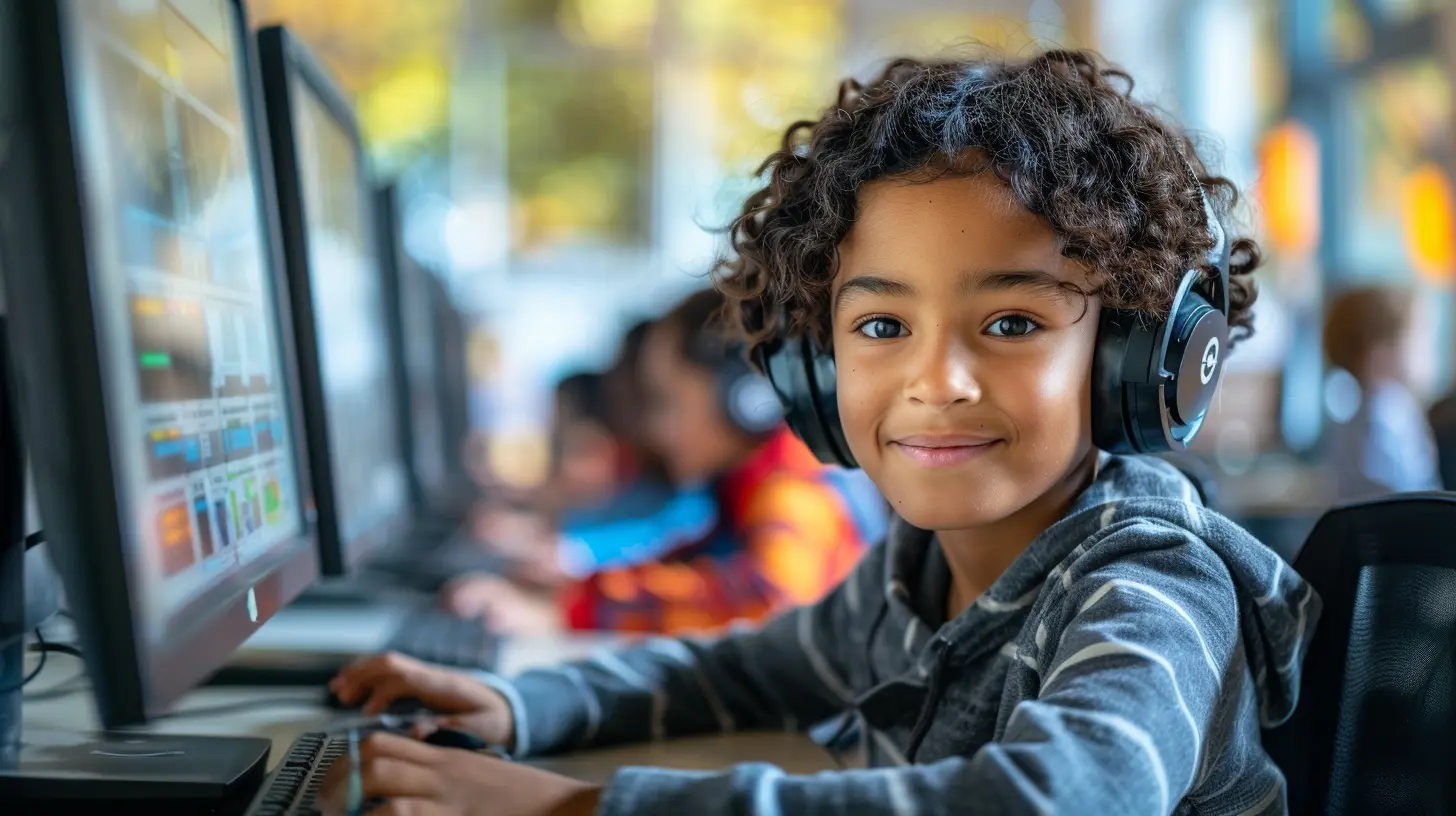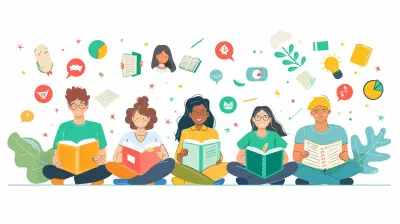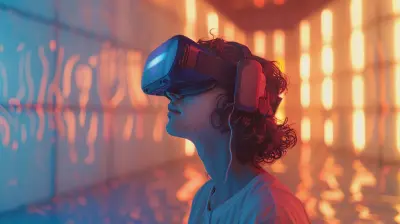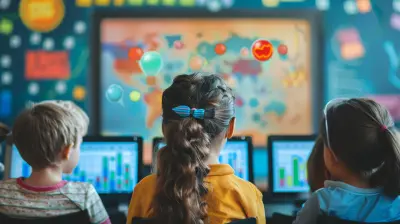4 March 2025
In recent years, the world of education has been turned upside down—thanks to technology. Gone are the days where students were confined to classrooms, chalkboards, and the squeaky sound of a wooden desk chair. Today, education is more fluid, more accessible, and more importantly, more virtual.
One of the biggest transformations in education is how assessments are conducted. Remote assessments, once thought of as a secondary option, are now at the forefront of modern education. Whether you’re a student, teacher, or parent, remote assessments are impacting the way we learn and teach in more ways than you might think. But how exactly are these remote assessments shaping the future of virtual classrooms? Let’s dive in.

What Are Remote Assessments?
Let’s start with the basics. A remote assessment is simply a test or evaluation that students can take from literally anywhere, as long as they have an internet connection. This could be a quiz, an exam, or even a project submission. The key difference from traditional assessments? There’s no need to physically be in the same room as the instructor or even attend a brick-and-mortar school.Remote assessments allow students to demonstrate their knowledge, skills, and understanding of material in a digital or virtual environment. They can be synchronous (everyone taking it at the same time) or asynchronous (students can complete the assessment within a flexible timeframe).
But remote assessments aren't just about swapping pen-and-paper tests for online forms. They come with a whole new set of tools, challenges, and opportunities—which brings us to the core of this article.

The Rise of Virtual Classrooms
Before we talk about assessments, let’s take a quick look at virtual classrooms. Remember when "going to school" meant waking up early, packing your bag, and physically heading to a school building? Well, that’s changing rapidly. Virtual classrooms have become a global trend, especially in the wake of the COVID-19 pandemic.Virtual classrooms essentially replicate the traditional classroom but in a digital space. They provide students with the same learning opportunities, but everything happens online: from lectures and group discussions to assignments and, yes, assessments.
With the increase in distance learning, remote assessments have become an essential aspect of virtual classrooms, allowing teachers to evaluate students without the constraints of physical space.

How Remote Assessments Are Changing the Game
So, how exactly are remote assessments shaping the future of virtual classrooms? Well, in more ways than one! Here are some of the key ways remote assessments are revolutionizing education:1. Flexibility and Accessibility
Let’s face it: not everyone learns the same way or at the same pace. Some students thrive under time pressure, while others need a bit more breathing room to gather their thoughts. Remote assessments offer a level of flexibility that traditional assessments can't match.Students can take assessments at times that work best for them, provided they meet deadlines. This is especially crucial for students who are juggling other responsibilities, such as work or family. Moreover, remote assessments make education more accessible to students in different geographical locations. Whether you're in a bustling city or a remote village, as long as you have access to the internet, you can participate.
2. Variety of Assessment Formats
Remote assessments aren't limited to multiple-choice questions or essays. In fact, they open the door to a wide range of assessment types that can cater to different learning styles. With the right tools, teachers can create interactive quizzes, video submissions, presentations, and even simulations that test real-world skills.This variety allows educators to assess students in more meaningful ways. Traditional assessments often focus on memorization, but remote assessments can evaluate critical thinking, creativity, and problem-solving skills. For instance, a science teacher might ask students to create a virtual experiment instead of just answering questions on a test.
3. Data-Driven Insights
Ever wonder how well you're really doing in school? Remote assessments offer detailed, data-driven insights for both students and educators. These platforms can track performance over time, highlight areas where students need improvement, and even provide personalized feedback.For educators, this means more than just grading papers. They can analyze trends, identify struggling students faster, and adjust their teaching strategies accordingly. This level of insight was hard to achieve with traditional, paper-based assessments.
4. Cheating? Not So Fast!
A common myth surrounding remote assessments is that they're ripe for cheating. After all, students are in the comfort of their own homes, right? Wrong! Remote assessments have evolved with advanced proctoring tools and technologies.These tools can monitor student behavior during the exam using webcams, screen recording, and even eye-tracking software. Some platforms also use AI to flag suspicious behavior, such as students looking away from the screen too often or using a secondary device.
While no system is entirely foolproof, remote assessments are making it much harder for students to cheat, ensuring that the results are a fair reflection of their abilities.
5. Personalized Learning Paths
One of the most exciting aspects of remote assessments is the potential for personalized learning. With traditional assessments, everyone takes the same test at the same time. But with remote assessments, educators can offer different versions of a test based on a student’s strengths and weaknesses.Imagine being able to skip questions you already know the answers to and focus on the areas where you need the most practice. That’s the future of education with remote assessments. This personalized approach not only helps students learn more effectively but also keeps them engaged.
6. Real-World Skills for a Digital Age
Let’s be real—remote assessments are preparing students for the future in more ways than one. In an increasingly digital world, the ability to work independently, manage time, and navigate online platforms are essential skills. Remote assessments help students develop these real-world skills.For example, many remote assessments require students to upload files, create digital presentations, or even work collaboratively with peers online. These are the kinds of tasks they’ll encounter in the workplace, making remote assessments a valuable tool in preparing students for life beyond the classroom.

Challenges of Remote Assessments
Of course, remote assessments aren't without their challenges. Like anything new, there are hurdles to overcome. Here are a few:1. Technical Issues
We’ve all been there—your internet crashes right in the middle of an important task. For students taking remote assessments, technical issues like slow internet, power outages, or platform glitches can be a major headache. While most platforms try to account for these issues (e.g., auto-saving answers), it can still be a stressful experience.2. Digital Divide
Not all students have access to high-quality devices or reliable internet. This digital divide can create an uneven playing field, especially for students from low-income families or those living in rural areas. Schools and governments need to address this issue by providing the necessary resources to all students.3. Lack of Interaction
While virtual classrooms and remote assessments offer flexibility, they can sometimes feel isolating. There’s less face-to-face interaction, and some students may struggle to stay engaged without the structure of a physical classroom environment. Teachers need to find ways to keep students motivated and connected, whether through group projects, video discussions, or interactive content.4. Adaptation for Special Needs
Students with learning disabilities or special needs may require additional support to succeed in remote assessments. While some platforms offer accommodations, such as extended time or alternative formats, more work needs to be done to ensure that remote assessments are inclusive for all learners.The Future of Remote Assessments and Virtual Classrooms
So, what does the future hold for remote assessments and virtual classrooms?We’re living in an era where education is no longer confined to four walls. As technology continues to evolve, remote assessments will likely become even more sophisticated, offering new ways to gauge student learning and development.
Artificial Intelligence (AI) will play a significant role in this evolution. Imagine customizable assessments that adapt in real-time based on student performance, or AI-powered tutors that offer instant feedback. These advancements will make education more personalized and efficient.
Additionally, we can expect to see more collaboration between educational institutions and tech companies to create seamless, user-friendly platforms that cater to both educators and students. As more schools begin to adopt hybrid learning models (a mix of in-person and online learning), remote assessments will be a key component of the educational experience.
Conclusion
Remote assessments are more than just a temporary solution—they’re a game changer for the future of education. By offering flexibility, personalized learning paths, and real-world skills, they’re helping to shape a new era of learning that’s more inclusive, dynamic, and data-driven.While there are challenges to overcome, such as technical issues and the digital divide, the potential of remote assessments far outweighs the drawbacks. As virtual classrooms continue to grow, remote assessments will play an increasingly vital role in ensuring that students receive a high-quality education—no matter where they are.
So, whether you're a student taking your first remote exam or a teacher exploring new ways to assess your class, one thing is clear: remote assessments are here to stay—and they’re shaping the future of virtual classrooms in ways we could’ve never imagined.












Russell Richardson
Remote assessments are revolutionizing education, offering flexibility and accessibility like never before. Embracing these innovations empowers both educators and students to thrive in a dynamic learning environment. Together, we’re shaping a brighter future where knowledge knows no boundaries. Let’s embrace this exciting journey ahead!
April 3, 2025 at 11:43 AM